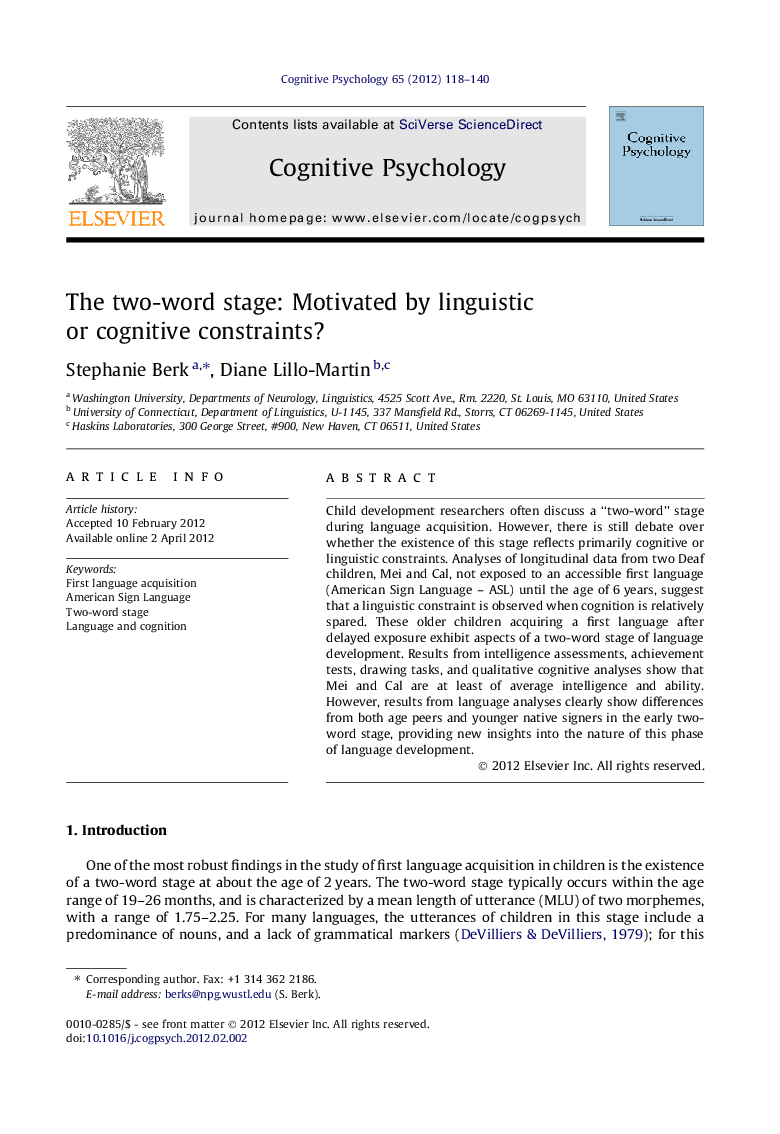| کد مقاله | کد نشریه | سال انتشار | مقاله انگلیسی | نسخه تمام متن |
|---|---|---|---|---|
| 916924 | 919004 | 2012 | 23 صفحه PDF | دانلود رایگان |

Child development researchers often discuss a “two-word” stage during language acquisition. However, there is still debate over whether the existence of this stage reflects primarily cognitive or linguistic constraints. Analyses of longitudinal data from two Deaf children, Mei and Cal, not exposed to an accessible first language (American Sign Language – ASL) until the age of 6 years, suggest that a linguistic constraint is observed when cognition is relatively spared. These older children acquiring a first language after delayed exposure exhibit aspects of a two-word stage of language development. Results from intelligence assessments, achievement tests, drawing tasks, and qualitative cognitive analyses show that Mei and Cal are at least of average intelligence and ability. However, results from language analyses clearly show differences from both age peers and younger native signers in the early two-word stage, providing new insights into the nature of this phase of language development.
► Cognition and language dissociation seen in two-word stage of late language learners.
► Late learners show MLU of 1.7–2.13, category difference, noun–verb proportion change.
► Late learners are 6;7–7;1, use mental verbs, and late-appearing semantic relations.
► Two-word stage exists for linguistic, but not cognitive components in late learners.
Journal: Cognitive Psychology - Volume 65, Issue 1, August 2012, Pages 118–140